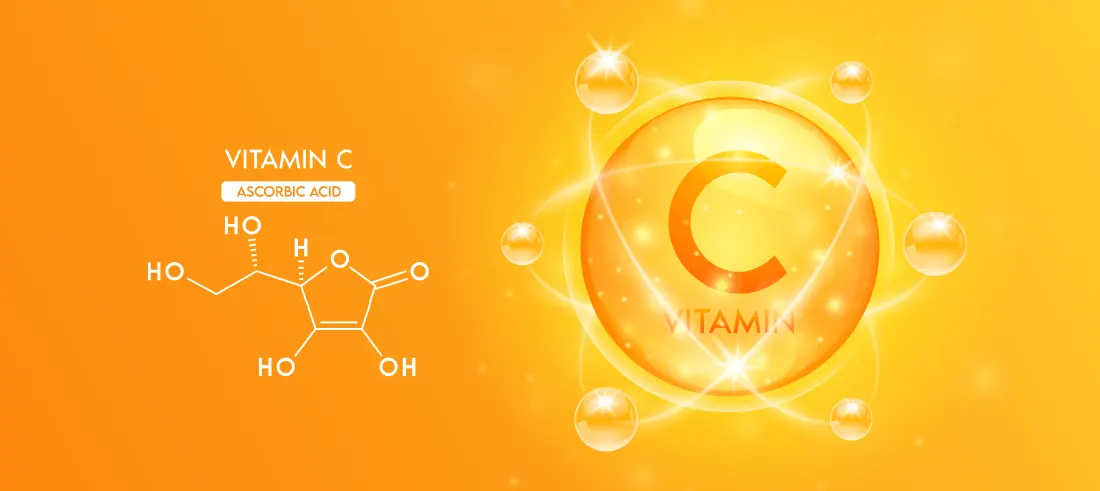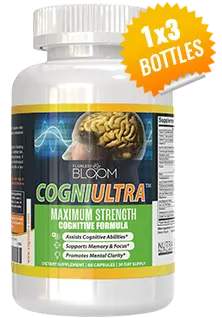Americans are well-versed in the health benefits of vitamin C. We are told from a very young age that vitamin C is important to prevent illness and that it is essential for our immune systems.
However, not many people are aware of the relationship between vitamin C and brain function. The fact is that vitamin C is just as important for our brains as it is for our bodies.*
In the following article, we will be discussing how vitamin C benefits brain function, what foods are good sources of vitamin C, the broader benefits of vitamin C, and much more.
What is Vitamin C?
To understand the more complex relationship between vitamin C and brain function, it is important to start at the beginning: what is vitamin C? Vitamin C, also known as ascorbic acid, is a water-soluble vitamin and antioxidant that is critical to many bodily functions.*
According to the Mayo Clinic, the body needs vitamin C in order to form blood vessels, produce cartilage, and for the healthy function of muscles and bones. There are many natural foods that contain vitamin C including citrus fruits (oranges, lemons, grapefruits etc.), berries, broccoli, tomato, peppers, and more.
Vitamin C and Brain Health
So what do vitamin C and brain health have to do with each other? The fact is that vitamin C benefits the brain by keeping neurotransmitters healthy and offsetting the effects of oxidative damage on brain cells.* Vitamin C and memory are also positively linked.
There are many aspects of the function of vitamin C as it pertains to brain health. Let’s take a look at some of the key points:
- High Mind Concentrations in the Brain- Our brains naturally contain a good amount of vitamin C. This has indicated that vitamin C is essential for brain function and when levels get too low, something needs to be done. Vitamin C and memory, for instance, share an important relationship.*
- Antioxidant Defense- Vitamin C is a type of antioxidant. Antioxidants neutralize free radical cells that can damage neurons and inhibit communication in the brain. Long-term antioxidant support may also limit your risk of developing neurodegenerative diseases.*
- Neurotransmitter Synthesis- One of the most established functions of vitamin C and brain health is the fact that it acts as a cofactor for many neurotransmitters, including dopamine and serotonin. This means that vitamin C may be important for regulating mood and outlook, along with dopamine and serotonin supplements.*
- Myelin Formation- Myelin acts as a sheath or protective layer around the nerves. Myelin ensures proper nerve impulse transmission. Vitamin C has been shown to regulate myelin production which means it can help nerve communication in the brain and body.*
- Neuronal Energy Metabolism- Amino acid synthesis is imperative for generating energy for neuronal function. So another way that vitamin C and brain function go hand-in-hand is by providing energy support to the neurons.*
Broader Health Benefits of Vitamin C
Aside from vitamin C cognitive function benefits, this nutrient is important for other areas of human health. Let’s take a look at other ways vitamin C contributes to health:
- Immune Support – Vitamin C provides support to key immune cells that allow the immune system as a whole to function. So it aids in the prevention of illnesses and infections.*
- Collagen Production – Vitamin C is also important for mobility because it is needed for collagen production. Collagen is a protein that is used in the joints, muscles, tendons, blood vessels, and more.*
- Iron Absorption – Iron absorption is important because iron helps prevent anemia. Studies have found that vitamin C is a “powerful enhancer of nonheme iron absorption.”
- Wound Healing – Since vitamin C is needed for collagen and protein synthesis, it is also imperative for skin wound healing. In fact, Vitamin C may accelerate the wound healing process.*
Recommended Intake & Supplementation
By now, it’s obvious that vitamin C and brain health are indelibly linked. But you may be asking yourself, ‘how much vitamin C should I be getting every day?’ And how much vitamin C for memory? First, you should understand that the recommended intake of vitamin C is different for men and women:
- For Men: The Mayo Clinic suggests that adult males should ingest about 90 milligrams of vitamin C per day for optimal brain and body health and to prevent a vitamin deficiency. Vitamin C and brain health are foever linked so you should always strive for this daily dosage.*
- For Women – Women are recommended to intake about 75 milligrams of vitamin C per day. However, women should try 120 milligrams of vitamin C per day when they are pregnant.
So how can you get this daily recommended dosage of vitamin C? The best way to get vitamin C for brain health is simply by eating fruits and vegetables that contain vitamin C. Still, it can be very hard to track how much vitamin C you are actually getting this way.
That’s why supplementation is a viable option. Vitamin C supplementation will allow you to keep a more accurate gauge on how much vitamin C you are getting with each dose and in each day. And since vitamin C and brain function depend on each other, you should strive for a quality supplement.
It’s also important to remember that there is a recommended upper dosage limit for vitamin C. Most medical authorities indicate that you should get no more than 2000 milligrams of vitamin C per day.*
Potential Risks & Considerations
While vitamin C is a well-tolerated nutrient, there are some instances in which taking too much can be dangerous. Overconsumption of vitamin C involves ingesting more than 2000 milligrams per day.
Doing so can negate some of the beneficial vitamin C effects on brain function and cause health issues like kidney stones.
There are also some interaction concerns. For instance, you may want to limit your vitamin C intake if you are taking medications like warfarin or are undergoing chemotherapy.
It should also be noted that the link between vitamin C and brain function can increase your body’s absorption of aluminum if you are taking any medications that contain aluminum.
Vitamin C may also interact negatively with estrogen treatments, phosphate binders, protease inhibitors, statins, and niacin.*
FAQs
How does vitamin C help the brain?
The main way that vitamin C benefits brain function is by protecting neurons and neurotransmitters.
How much vitamin C is in the brain?
Medical authorities have posited that there are about 1-2 millimoles per liter in the average human brain.* Vitamin C and brain function share a close relationship so you should always make sure you have an adequate level of it.
What vitamins are responsible for brain function?
Vitamin C and brain function are inexorably linked because vitamin C ensures healthy neurotransmitter levels and function in the brain.*
How does vitamin C improve body function?
Vitamin C supports various aspects of human body function by helping to synthesize collagen and proteins, supporting healthy immune response, and nourishing cartilage in joints and muscles.*
Is there a link between vitamin C and memory?
Yes. Vitamin C is an antioxidant that may prevent the neural inflammation that is related to memory loss.*
Conclusion
Apart from the well-known benefits on the immune system and the vitamin C effects on brain function, vitamin C is an important nutrient for other areas of physiological health.
It helps the body develop and helps create key components in the blood and DNA that are essential for normal physiological function.*
Therefore, it is very important that you make sure you are getting a balanced intake of vitamin C. Try to get vitamin C through your normal diet by eating plenty of fruits and vegetables.
Vitamin C supplements can also be very helpful for dialing in your exact daily dosage. Most of all, remember that vitamin C is essential for cognitive function and if you want to keep your brain healthy as you age, you will make sure that it is a regular part of your diet and lifestyle.*




